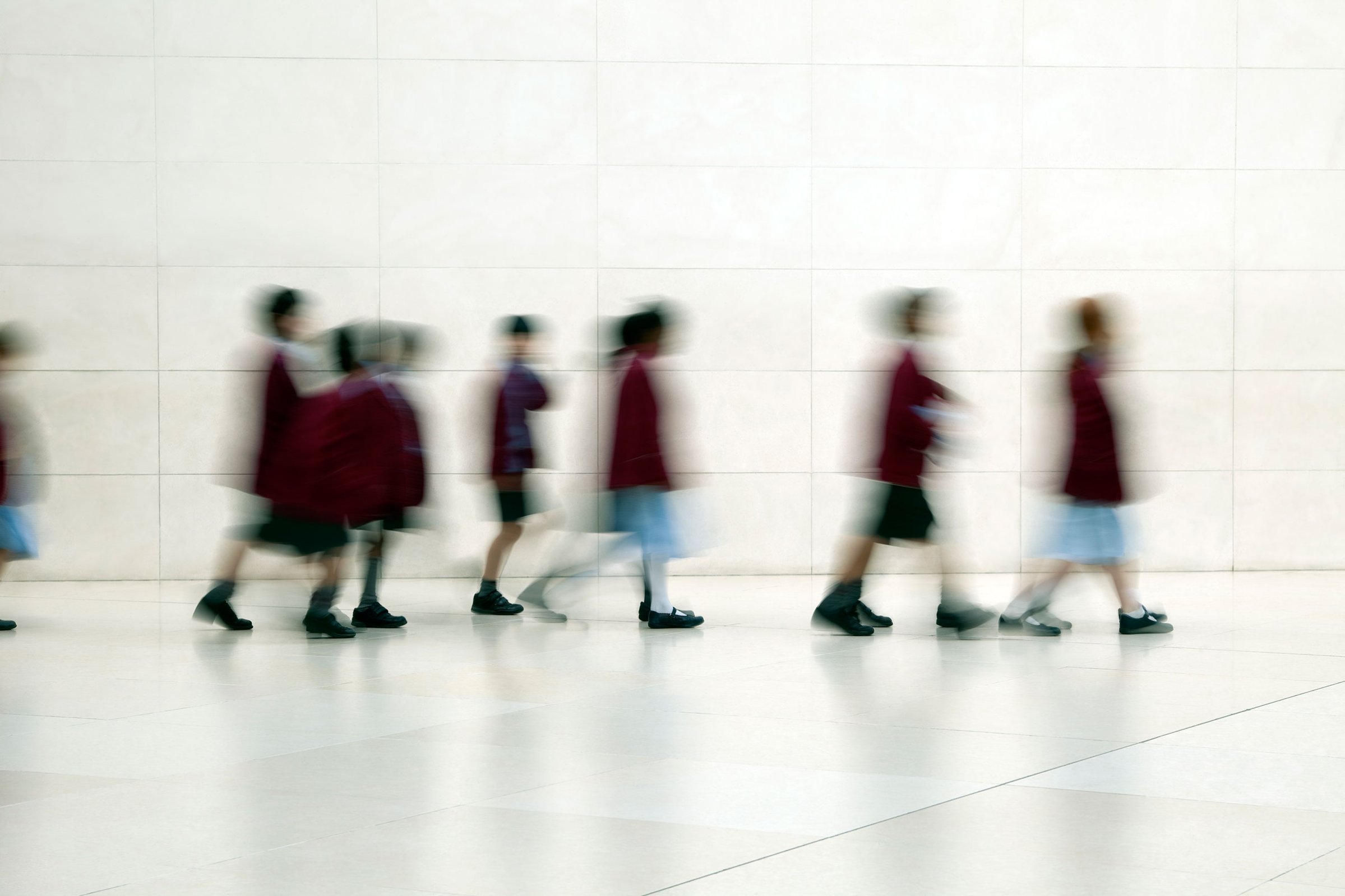
Secretary of Education Betsy DeVos has stoked public outrage more consistently than any other member of President Donald Trump’s Cabinet, a group not principally known for evading indignation. But perhaps DeVos’s most alarming error to date has received insufficient public attention. This disregard is regrettable because her blunder illuminates one of the U.S. Supreme Court’s most momentous opinions — and exposes a mounting threat to the decision.
As last school year drew to a close, Congressman Adrian Espaillat of New York asked DeVos in a committee hearing whether public educators could report undocumented students to Immigration and Customs Enforcement. “Sir, I think that’s a school decision,” DeVos replied. “That’s a community decision.” That response, however, revealed a deluded conception of unauthorized immigrants’ constitutional rights.
In 1982, the Supreme Court, in a 5-4 decision called Plyler v. Doe, rejected a Texas law that authorized local schools to exclude undocumented students. Writing for the Court, Justice William Brennan found that the law impermissibly punished “innocent children” for parental misconduct, and that it clashed with the country’s deepest constitutional commitments. If left unchecked, Brennan reasoned, the measure “raise[d] the specter of a permanent caste of undocumented resident aliens,” a development “present[ing] most difficult problems for a Nation that prides itself on adherence to principles of equality under law.” In essence, a student’s immigration status forms an illegitimate basis for barring children from school.
When the Court issued Plyler, no state in the country other than Texas had enacted such legislation. This legislative backdrop has motivated prominent constitutional scholars to dismiss Plyler as an insignificant opinion that invalidated merely an outlier statute. The Court’s decision is thus construed as merely eliminating a blatantly outlandish measure — one that would hold no appeal beyond the Lone Star State, where a cowboy mentality prevails.
But such dismissive assessments miss the mark. Rather than some trivial event in the nation’s constitutional history, it seems far more accurate to understand Plyler as preventing an isolated measure from becoming pervasive, as anxieties about unauthorized immigrants extend well beyond states along the southern border. Few opinions in American history have had more profound consequences than Plyler’s guarantee that the schoolhouse doors cannot be closed to one of society’s most marginalized, vilified groups. The opinion has single-handedly enabled innumerable children to use education to expand both their minds and their horizons.
About two weeks after her blunder, DeVos retreated from claiming that public schools could police students’ immigration status, labeling Plyler a “settled case” and conceding that undocumented students “have the right to an education.” The pressing question now, however, is: how much longer will that right exist? Several factors suggest that Plyler could soon be endangered.
Trump’s successful presidential campaign, which cast unauthorized immigrants as boogeymen, revealed unmistakably that nativist sentiment exerts a powerful force throughout the country. That reality indicates it is only a matter of time before localities, states and perhaps even the federal government enact measures challenging Plyler. (One could imagine supporters echoing the Trump Administration’s logic for its family-separation policy: that it would deter parents from bringing their children to the United States illegally.) Although Alabama and California both enacted legislation designed to undermine Plyler several years ago, those efforts were successfully interred in lower federal courts. But this time could be different.
Indeed, ample reason suggests the Supreme Court could greet new anti-Plyler legislation favorably. In 1982, a young lawyer working in the Reagan Administration named John G. Roberts, Jr. coauthored a memorandum bemoaning the Department of Justice’s failure to file an amicus brief in Plyler actively supporting Texas. Had it done so, Roberts speculated, the Court would have upheld the law. Now the Chief Justice, if Roberts continues to believe that Plyler erred, then he could well rally his fellow conservative colleagues to overturn the decision.
Roberts’s burden on this front appears on the verge of growing easier, as Supreme Court nominee Judge Brett Kavanaugh’s confirmation hearings commence. If — as seems probable — Kavanaugh secures confirmation, he would fill the seat of his old boss, Justice Anthony Kennedy. Kennedy’s jurisprudence often exhibited solicitude for the plight of vulnerable children — the reasoning in Plyler. Yet while it was exceedingly difficult to envision Kennedy abandoning undocumented children, it seems eminently plausible that Kavanaugh would do so. The reason is simple: Kavanaugh, unlike Kennedy, has been a steadfast, even exuberant participant in the Republican party’s movement for constitutional conservatism, and the G.O.P. has now coalesced around an anti-immigrant ethos. Where Kennedy often bucked Federalist Society orthodoxy, only a naïf would doubt Kavanaugh’s devotion.
If Democratic Senators press Kavanaugh on Plyler in hearings, he will likely, borrowing from Secretary DeVos, deem the opinion “settled.” But that is no guarantee that he will uphold the precedent, a prospect that undocumented families — and, indeed, all families — should find unsettling.
This essay is adapted from The Schoolhouse Gate: Public Education, the Supreme Court, and the Battle for the American Mind.
More Must-Reads from TIME
- Cybersecurity Experts Are Sounding the Alarm on DOGE
- Meet the 2025 Women of the Year
- The Harsh Truth About Disability Inclusion
- Why Do More Young Adults Have Cancer?
- Colman Domingo Leads With Radical Love
- How to Get Better at Doing Things Alone
- Michelle Zauner Stares Down the Darkness
Contact us at letters@time.com